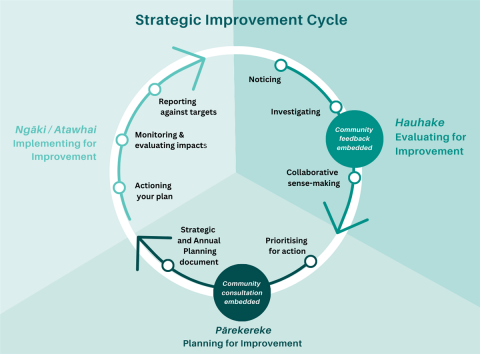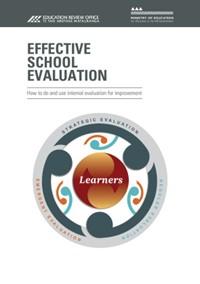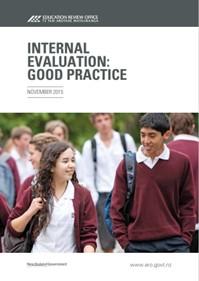Kia ora,
The start of the 2023 school year hasn’t been as smooth as we had all hoped, impacted by severe weather events across much of the North Island. Despite these new challenges, I am continually impressed by the tenacity shown by our communities, schools and whānau. In times of great difficulty, our communities pull together. It is heartening to see stories of heroic acts, generosity, kindness and kiwi ingenuity. Our thoughts are with the people whose lives are impacted by these events.
It is clear that it will be some time before these regions are back to normal, and here at ERO, we are mindful that this also impacts on our evaluation work in some schools. I know that the badly affected schools that were due for evaluation have been contacted to assure them that this work will be on hold until they are back on their feet. Where appropriate, we are taking a case-by-case approach and continuing our work programme. Our usual evaluation work continues in all areas that have not been affected by Cyclone Gabrielle or flooding.
In this edition of Sharing the mahi, we are focusing on effective school evaluation – the evaluation activities that you undertake at your school, and how what you find helps to inform your strategic planning and reporting. Understanding what’s happening in your school, and with your learners, is crucial to identifying what areas need improvement and will help you to develop a strategic plan that actively targets those key areas.
Also in this newsletter, we look at the third phase of Te Ara Huarau, Ngaki/Atawhai - Implementing for improvement; we hear from Brian Harrop, Principal of David Street School about how evaluation has supported his school's strategic direction; and what we know about attendance and what we’re doing to support your school.
As always, we are keen to hear from you. If you have any feedback around Te Ara Huarau and our work with schools, please contact your ERO evaluation partner.

Engaging in effective evaluation to inform strategic planning
Effective evaluation is a part of your school’s strategic and annual planning and reporting process.
Why is evaluation so important?
The whole point of school evaluation is to assess what is and is not working, and for whom, and then to determine what changes are needed, particularly to advance equity and excellence goals central to schooling improvement. Effective evaluation is always driven by the motivation to improve, to do better for learners.
When evaluation is working well
When internal evaluation is done well, the process is systematic, coherent across the school and aligned with setting your school’s vision and strategic direction. A good evaluation process will help you determine key priorities, set the right goals, monitor progress, evaluate outcomes, set next steps and report findings.
Much more than a technical process, evaluation is deeply influenced by your school’s values, accountability and responsiveness to the needs of your community and other evidence-based information. Evaluation involves asking good questions, engaging with stakeholders, gathering fit-for-purpose data and information, and then making sense of that information to drive improvement.
Evaluation illustrates shifts in practice and the impact of actions taken on learners. The urgency to improve is shared by all and can be articulated by all.
A straight-forward evaluation process
Evaluation doesn’t have to be complicated, but robust and systematic. The diagram below shows an easy-to-follow strategic evaluation and improvement cycle and how ERO’s Te Ara Huarau evaluation approach can support you.


Here are some resources to help you with your evaluation
Effective school evaluation
This resource describes what effective internal evaluation is, what it involves, and how to go about it in ways that will enhance educational outcomes for students. It draws on current knowledge about internal evaluation, and on case studies of New Zealand schools that have used internal evaluation to inform the development of strategies that have been successful in raising achievement, particularly that of Māori and Pacific learners.
Click here to go to the resource.
Internal evaluation: good practice

This good practice report showcases 13 schools and how they’ve used internal evaluation to change their practice to support students to achieve. What these schools did is replicable – these stories will inspire principals, boards and teachers to identify every child and young person underachieving or at risk of underachieving and work out how to improve their educational outcomes.
Click here to go to the resource.
We’re here to support you
Your ERO evaluation partner will work alongside your school to support and enhance your internal evaluation and improvement process. How often we engage with schools depends on each school’s context and needs. We are focused on helping all schools to make improvements in the areas that deliver the greatest shifts to learner success.
Understanding the phases of Te Ara Huarau: Ngaki/Atawhai
In previous editions of Sharing the mahi, we have looked at Hauhake and Pārekereke, the first and second phases of the School Improvement Journey. This term, we are taking a closer look at the third phase, Ngaki/Atawhai - Implementing for improvement. We can evaluate and we can plan, but until we implement by taking action there is little change. ERO recognises that schools are the change agents for their learners.

The narrative
Tēnā te ringa tango parahia. Remove the weeds that threaten the growth of the kūmara. Everyone has a role and responsibility to ensure the success of the harvest. The different functions require relevant and appropriate skills which are fundamental to the outcome of the kūmara. This includes continuously monitoring the state and conditions of the environment.
What happens during this phase
During the Ngaki/Atawhai phase, your school community - including whānau, iwi, school and learners - will have primary responsibility for the ongoing implementation and monitoring of your improvement plan.
Your ERO evaluation partner may work with your school to:
- support monitoring and reporting
- facilitate further evaluation and reporting of impacts, ensuring the focus is on improving learner outcomes for equity and excellence
support your school’s internal evaluation to know how well you are working with every child to realise their potential to be successful.
Read more about Te Ara Huarau on our webiste.
Leader's spotlight
In this edition of Sharing the mahi, we hear from Brian Harrop, Principal of David Street School about how evaluation has supported their school's strategic direction.
David Street School is a contributing school of about 550 in the township on Morrinsville, in the North Island.

Q: Tell us about the internal evaluation you have undertaken at your school.
A: We have been working in Te Ara Huarau for just over two years. Initially, we believed that our strategic planning approach was serving our school community well. Our engagement in ERO’s new approach has facilitated greater clarity and potential for improving what really matters to our school community. We are now focused on finding how responsive and effective our school’s local curriculum is in improving outcomes for all learners.
Q: How has this knowledge informed your strategic planning?
A: We began by becoming more purposeful and targeted in our assessment practices which are increasingly a shared and collaborative responsibility. We ask four important questions. Why we did what we did? How well we did it? Who was better off? Was it sufficient?
Child, teacher and whānau agency (choice, voice and ownership) supported with child speak learning pathways are important initiatives which is strengthening three way learning conversations, including the building of a common language for learning. Children use ‘placemats’ as a tool to help them reflect on their goals and to unpack their next learning steps. The sharing, analysis, and evaluation of learner voice against agreed goals has become a feature of our regular professional learning groups, teams and staff meetings. We continuously monitor our collaborative inquiry processes and professional learning opportunities to ensure they are aligned with our vision, values, key competencies, goals and targets.
Staff having skin in the game has contributed to their increased commitment to evaluation for improvement as essential parts of ‘just the way we do things around here’. Evaluation is no longer the end point. It is continuous and feeds directly into our annual plan as we go.
We think that what we are doing will be more aligned to where the Ministry of Education is heading with strategic planning, as well as being more responsive to the school’s evolving outcomes and priorities, and free from irrelevant clutter and compliance matters.
Q: How has your ERO evaluation partner and/or ERO resources supported you through this process?
A: Our evaluation partner has become a valued coach and mentor working alongside our leadership team and presiding member of our board.
She initially spent time developing and understanding our school context. This enabled open and honest collaboration that defined the successful ERO and school relationship.
She allowed us the time to bring stakeholders along on the journey as we built commitment, understanding and belief in sustainable evaluative processes for improvement.
Our evaluation partner shared a number of useful evaluative tools and frameworks for use as we needed. Her use of open invitational questions supported and challenged our thinking, and was significant in us achieving an evaluation focus that faithfully captures our agreed needs and improvement direction.
Q: How would you describe your Te Ara Huarau journey so far?
A: Our journey in the first two years has been positively challenging and rewarding. It has kept the child at the centre. While the journey is a continuous one, and will be different to others, we celebrate the beginning we have made, and we have evidence of improved outcomes for children.
We are building a responsive, evidence driven and manageable improvement process that we believe will strengthen our systems and ensure improved equitable outcomes for all.
Attendance: attitudes towards school are key to solving the attendance crisis
Building on our 2022 report Missing Out: Why Aren’t Our Children Going to School?, ERO has released new insights, looking at what the biggest drivers of children going to school are, and what families and schools can do to help.
What did we find?
We found that many parents don’t value going to school regularly and this really matters for their children. Four in 10 parents are comfortable with their child missing a week or more a term, and these parents are more than twice as likely to have a child who misses school regularly.
In addition to this, a third of children do not think going to school every day is important and this is a key driver in them missing school. They are also more likely to miss school if they find schoolwork too hard, can’t participate in some activities, don’t like people in their class, don’t like a teacher or aren’t interested in what is being taught.
To improve attendance, we need to shift parents’ attitudes towards attending school, help learners to enjoy school more and see how important it is for their futures. You can read our latest insights here: https://ero.govt.nz/our-research/attendance-getting-back-to-school
What can schools do?
Although we know that schools cannot solve the attendance crisis alone, they can help parents to understand the impact of missing school and how often their children are going to school. Schools can also help learners to see how important school is for their futures.
Some actions schools can take include:
- Schools can help address parents’ attitudes by highlighting the ongoing impact of non-attendance on learning and increasing awareness of how often their children are going to school. As attendance habits that begin in primary school follow through into later years, it is important to deliver these messages early and often.
- Make school a great place to be by developing positive relationships between learners and teachers and getting learners interested in their learning.
- Focusing on the biggest drivers of attendance. For example, they can help learners to see how important school is for their futures.
How is ERO supporting schools?
To support schools, we have released short guides with practical actions schools can take to improve attendance. You can find the guides on ERO’s website here: https://ero.govt.nz/our-research/category/attendance-in-new-zealand
Your evaluation partner will discuss attendance with you and will seek information from you about your learners’ attendance patterns.
To help you start the conversation with your school community, we’ve put together this news article that you can share in your school newsletter.
Every day counts at school
Regular school attendance makes a big difference for all learners. Every day counts, and we know that missing too many days of school leads to lower achievement, poorer wellbeing, and other worrying outcomes.
Research from the Education Review Office shows that four in 10 parents (41 percent) of both primary and secondary learners are comfortable with their child missing a week or more of school a term. It’s important that everyone - learners, parents and whānau - understand just how important regular attendance is, and just how missing a few days of school here and there has a big impact.
The impact on your child’s achievement
We know that attendance is directly related to how well learners achieve. The more learners attend school, the higher their achievement.
There is no safe level of non-attendance – even missing just two days a term is linked to lower achievement. Missing school leads to lost opportunities to learn, which impacts on achievement, even if learners have good engagement.
The impact of missing school continues to build over time as learners fall further behind their peers. This means that non-regular attendance has long-lasting negative impacts.
Attendance affects your child’s wellbeing
Going to school is important for learners’ wellbeing. The research shows that more frequent non‑attendance is associated with worse wellbeing outcomes, including schoolwork-related anxiety, decreased sense of belonging, fewer friendships with peers, exposure to bullying, and feeling like teachers are being unfair. The relationship between attendance and wellbeing works both ways: poor wellbeing leads to poor attendance, and poor attendance leads to poor wellbeing.
Help us to help you
If there’s a barrier to your child attending school regularly, we want to help you overcome this barrier. Please talk to your child’s teacher so we can create an action plan together.
For more information about ERO and our mahi please visit ero.govt.nz
To be added to our mailing list for Sharing the mahi, please email us at ricomms@ero.govt.nz